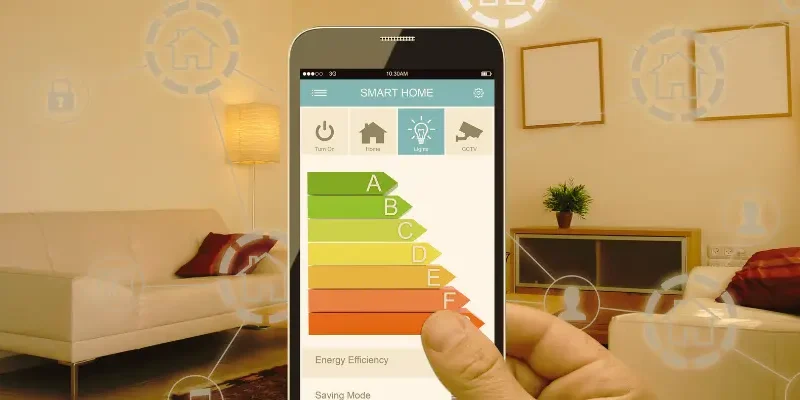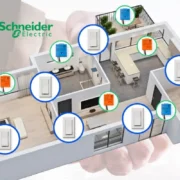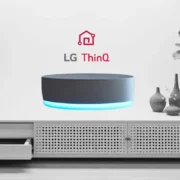The era of smart energy has arrived, bringing with it a wave of innovative technologies that go far beyond the simple smart light bulb. As global energy consumption continues to rise, the need for intelligent, efficient, and sustainable energy solutions has never been more critical. In this article, we will explore the cutting edge of smart energy technologies, their benefits, impact, and future trends.
Cutting-Edge Smart Energy Technologies
Smart Grids
Smart grids represent a significant advancement in the management and distribution of electricity. Unlike traditional power grids, smart grids use digital technology to monitor and manage the flow of electricity from all sources to meet the varying electricity demands of end-users. These grids improve efficiency, reliability, and sustainability by enabling two-way communication between the utility and its customers.
Smart grids can:
- Optimize energy distribution by predicting and responding to energy usage patterns.
- Integrate renewable energy sources like solar and wind, reducing dependency on fossil fuels.
- Enhance outage management through real-time monitoring and quicker restoration of power.
AI-Driven Energy Optimization
Artificial Intelligence (AI) is playing a pivotal role in transforming how energy is consumed and managed in smart homes. AI algorithms analyze data from various sources, including weather patterns, user behavior, and energy consumption trends, to optimize energy usage.
Key applications of AI in smart energy include:
- Predictive maintenance of energy systems, reducing downtime and extending the lifespan of equipment.
- Automated energy management systems that adjust heating, cooling, and lighting based on real-time data.
- Energy forecasting to better align energy production with consumption, minimizing waste.
Energy-Efficient Building Design
Energy-efficient building design is another critical component of smart energy. These designs incorporate advanced materials and technologies to reduce energy consumption and improve the overall efficiency of homes.
Features of energy-efficient building design:
- High-performance insulation to reduce heating and cooling costs.
- Energy-efficient windows and doors to minimize heat loss.
- Smart HVAC systems that adjust based on occupancy and external weather conditions.
- Solar panels and energy storage systems to harness and store renewable energy.
Benefits and Impact of Smart Energy
The adoption of smart energy technologies offers numerous benefits and has a profound impact on both individuals and the environment.
Environmental Benefits:
- Reduction in greenhouse gas emissions through the increased use of renewable energy sources.
- Lower energy consumption due to more efficient energy management and usage.
Economic Benefits:
- Cost savings on energy bills through optimized energy usage and reduced waste.
- Increased property value for homes with integrated smart energy systems.
Social Benefits:
- Enhanced comfort and convenience through automated systems that adjust to personal preferences.
- Improved energy security with more reliable and resilient energy systems.
The Future of Smart Energy
The future of smart energy is bright, with several innovations and emerging trends poised to revolutionize the way we consume and manage energy in our homes.
Innovations in the Pipeline
Smart Meters: Smart meters are becoming more advanced, providing real-time data on energy usage and enabling users to make more informed decisions about their energy consumption.
Vehicle-to-Grid (V2G) Technology: This technology allows electric vehicles to communicate with the power grid and contribute to energy storage and distribution, further integrating renewable energy sources.
Emerging Trends
Smart Grids: The integration of smart grids is expected to become more widespread, enhancing the reliability and efficiency of energy distribution networks.
Energy-Efficient Building Design: Innovations in building materials and design techniques will continue to improve the energy efficiency of new and existing structures.
AI in Energy Management: The role of AI in energy management will expand, with more sophisticated algorithms and machine learning techniques being developed to further optimize energy usage.
The Role of AI in Optimizing Energy Usage: AI’s capability to learn and adapt will lead to even smarter energy solutions, providing personalized energy management based on individual needs and preferences.
The landscape of smart energy is rapidly evolving, driven by innovative technologies and an increasing focus on sustainability. From smart grids and AI-driven optimization to energy-efficient building designs, these advancements are transforming our homes into intelligent, energy-efficient environments. As we look to the future, the continued integration of smart energy technologies will play a crucial role in creating a more sustainable and efficient world. Embracing these cutting-edge solutions today will pave the way for a smarter, greener tomorrow.












Comments